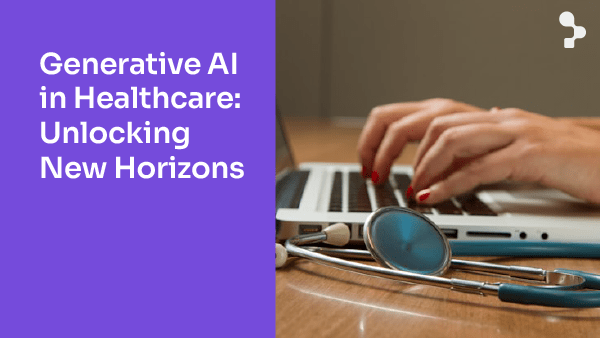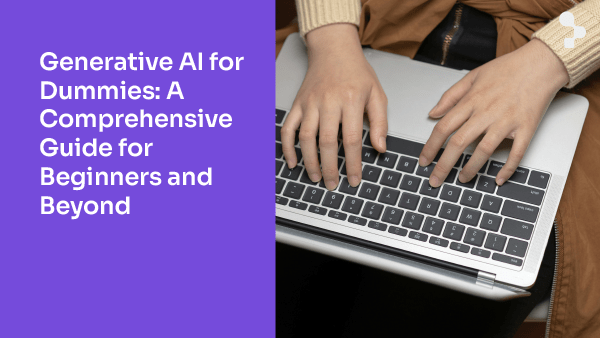Discover how AI is revolutionizing the accounting industry, enhancing efficiency, accuracy, and decision-making. Learn about the benefits, challenges, and opportunities of Generative AI in accounting, and how we can help you leverage these advancements.


Generative Artificial Intelligence (GenAI) is transforming the accounting industry in ways we could hardly imagine just a few years ago.
From automating routine tasks to providing deep insights into financial data, advancements in AI technology are becoming an indispensable tool for accounting firms. AI can analyze financial data to provide insights, identify patterns, and flag possible fraudulent activity, ultimately enhancing decision-making and financial transaction security.
In this article, we explore the benefits of GenAI in accounting, how to overcome challenges and seize opportunities. We share potential use cases and an Abstracta’s case study to showcase different ways to enhance your firm’s productivity and work quality.
Need support for increasing your productivity? We build AI-driven solutions specifically tailored to your needs. Explore our AI Software Development Services and contact us.
What is Generative AI in Accounting?


Generative AI in accounting refers to the application of advanced artificial intelligence technologies specifically designed to create new content and insights, rather than just analyzing existing data. These technologies go beyond traditional machine learning, natural language processing, and robotic process automation.
How is Generative AI Different from Traditional AI?
While traditional AI focuses on automating and enhancing existing processes, generative AI goes a step further by creating new data, insights, and even predictive models. Traditional AI might automate data entry or invoice processing, but generative AI can produce detailed financial forecasts, simulate various financial scenarios, and generate insightful reports.
Generative AI differs from traditional AI mainly in its use of pre-trained models, which allows for immediate results without the need to develop new models or collect large datasets. This makes Generative AI more efficient and accessible, enabling users to quickly generate value with minimal effort. In contrast, traditional AI typically requires extensive data collection and training for each specific task.
How is Generative AI Being Used in Accounting?
GenAI is transforming the accounting profession in numerous ways.
AI tools are revolutionizing accounting processes by automating routine tasks, enhancing data analysis, and providing security measures. They can automate the creation of expense reports, outline tasks like data entry and invoice processing, provide deep insights into financial data, and aid in financial forecasting and fraud detection.
By leveraging generative AI, accounting professionals can shift their focus to more strategic activities, thereby improving their overall efficiency and effectiveness.
Don’t miss this article! How to Use Generative Artificial Intelligence to Empower Your Business
Benefits of Generative AI in Accounting Today
- Streamline Routine Tasks and Save Time: Generative AI can effortlessly handle tasks like data entry, invoice processing, and reconciliation. By automating these repetitive activities, it frees up valuable time for accountants to focus on more strategic and complex tasks, significantly boosting overall productivity.
- Boost Accuracy and Minimize Errors: One of the standout advantages is its ability to improve accuracy. By taking over routine data entry and similar tasks, it drastically reduces the chances of human error. Over time, as the AI learns and refines its processes, the accuracy of financial records and reports continues to improve, enabling compliance with regulatory standards.
- Deliver Real-Time Data Analysis and Insights: Gen AI excels at analyzing vast amounts of financial data in real time, providing immediate and actionable insights. This allows accountants to quickly identify trends, patterns, and anomalies that might be missed through manual analysis. With these insights, companies can swiftly address emerging issues and seize new opportunities.
- Enhance Financial Planning and Risk Management: By analyzing financial data, generative AI improves financial planning and risk management. It helps identify potential risks and opportunities, enabling the development of effective financial strategies. Additionally, it assists in creating detailed budgets and forecasts, providing a clear financial roadmap for the future.
Challenges in Integrating Generative AI


Despite its benefits, integrating Generative AI into accounting systems comes with its own set of challenges.
One of the primary challenges is the technological barrier. Many accounting firms may not have the necessary infrastructure to support GenAI technologies. Additionally, there is often resistance to change from employees who may fear that AI will replace their jobs. Lastly, the initial cost of implementing AI can be high, which may deter some firms from adopting it.
To fully leverage the potential of AI, it’s crucial to address these challenges effectively. Let’s explore some strategies to overcome these obstacles and seize the opportunities that AI offers.
Overcoming Challenges
While the challenges of integrating AI into accounting are significant, they are not insurmountable. By addressing them head-on, accounting firms can unlock the full potential of AI and transform their operations.
Let’s dive into how to overcome the three aforementioned challenges:
- Building the Necessary Infrastructure
To overcome technological barriers, it is necessary to make GenAI tools available safely and accessible to all employees so they can experiment with their own data. The recommendation here is to leverage cloud-based AI solutions to reduce the need for extensive on-premises infrastructure, making AI deployment easier and more cost-effective. Products like PrivateGPT can be an example of how to quickly and safely make this technology available.
- ¿Can AI replace accountants? Managing Change and Employee Concerns
Resistance to change is common with new technologies. To address this, firms should focus on change management and employee engagement by clearly communicating AI benefits and providing training. While AI can handle certain tasks efficiently, it cannot replace human expertise and judgment. Together, AI and accountants can achieve better outcomes and drive business success.
- Addressing Cost Concerns
The initial cost of implementing AI might be a barrier. To mitigate this, firms can start with small-scale AI projects that deliver quick wins and demonstrate value, building a business case for further investment. Exploring financing options, grants, and partnerships can also help manage the financial impact. Over time, cost savings and efficiency can offset the initial investment, making it a worthwhile endeavor.
Potential Use Cases: Opportunities in AI for Accounting


Once the challenges are addressed, the opportunities that AI presents for the accounting industry are vast. Here are some key areas where AI can make a significant impact:
Enhanced Client Services
AI can help accounting firms provide more personalized and proactive services to their clients. By analyzing client data, AI can identify opportunities for tax savings, investment strategies, and financial planning. This allows firms to offer tailored advice and build stronger client relationships.
Streamlined Compliance
AI can automate compliance processes, encouraging firms to meet regulatory requirements efficiently and accurately. By keeping up with changing regulations and automating the generation of financial reports, AI reduces the risk of non-compliance and frees up time for accountants to focus on strategic tasks.
Improved Operational Efficiency
AI can streamline internal accounting processes, reducing the time and effort required for tasks such as data entry, reconciliation, and financial analysis. This improves operational efficiency and allows firms to handle larger volumes of work without compromising on quality.
Automating Invoice Processing
Generative AI algorithms scan and extract data from invoices, drastically reducing the time and effort required for manual data entry. This speeds up the process and minimizes errors.
Generating Financial Reports
Generative AI automatically creates detailed financial reports, offering insights and visualizations that help stakeholders understand the financial health of the organization.
On the whole, while integrating AI into accounting systems presents challenges, the opportunities it offers are immense. By addressing the technological, cultural, and financial barriers, accounting firms can harness the power of AI to transform their business.
Looking for an AI Technology Partner? Explore our AI Software Development Services! Our global client reviews on Clutch speak for themselves.
Case Study: Automating Daily Bank Transaction Data Extraction to Record


We’ll now share a real case of how we have transformed the labor-intensive task of extracting daily bank transaction data from PDFs, enhancing efficiency for accounting teams.
Understanding Challenges
Our client, a global accounting firm, was facing significant challenges in manually extracting transaction data from various financial institutions’ PDFs. This task was not only time-consuming but also prone to errors, consuming precious resources and potentially leading to inaccuracies in financial reporting.
The extraction of daily transaction data from bank statements or investment reports in PDF format is extremely labor-intensive. This task can take anywhere from a few minutes to 10 hours, depending on the number of transactions. Annual reports from one financial institution can contain over 1,000 transactions.
Solutions and Activities
We created a solution that automates the processing of bank transactions.
- Ease of Use: We designed an intuitive portal where users can log in effortlessly.
- Document Upload: Users can now upload bank statements or financial institution reports from which they want to extract transactions. Currently, supported institutions include Bank of America, Safra National Bank, Itaú, Pershing, and UBS Financial Services.
- Automated Extraction: Leveraging GenAI, our solution accurately extracts daily transaction information and allows users to download the results into accounting software like Xero.
- Technology and Security: Our solution utilizes AI to process data intelligently and efficiently, enabling privacy and security with a private and secure connection to Microsoft Azure. It never uses data for training, sharing with external entities, or storing, thereby ensuring compliance with privacy regulations.
Results and Achievements
Our collaboration with the global accounting firm led to significant improvements in their data extraction processes, resulting in more accurate and efficient financial reporting.
✅ Increased Efficiency: Reduced the time needed for data extraction, enabling the accounting team to focus on higher-value tasks.
✅ Enhanced Accuracy: Minimized errors in data extraction, improving the reliability of financial reports and reducing the risk of discrepancies.
✅ Resource Optimization: Freed up valuable time, allowing the accounting team to handle more complex tasks and improve overall productivity.
Introducing docuAI: Simplify Financial Data Extraction
Our commitment to innovation and efficiency has led us to develop solutions that transform daily accounting tasks. A standout example of this is our tool docuAI, designed to simplify financial data extraction.
As we outlined in the case study, manually extracting data from daily financial transactions can be a time-consuming and error-prone task. This is where docuAI comes into play.
docuAI automates the entire data extraction process, freeing up your accounting team to focus on more strategic tasks. This intelligent tool is designed to seamlessly handle the complexities of different financial institutions’ formats, boosting accuracy and efficiency.
Our tool supports a wide range of financial institutions and integrates seamlessly with your system, prioritizing your data’s security and privacy. It automates data extraction from bank statements and financial reports, reducing manual labor and errors. You need simply to log in, upload your document, and let docuAI do the rest.
For more details, visit docuAI on Azure Marketplace.
How We Can Help You
With over 16 years of experience and a global presence, Abstracta is a leading technology solutions company specializing in end-to-end software testing services and AI software development.
We believe that actively bonding ties propels us further and helps us enhance our clients’ software. That’s why we’ve forged robust partnerships with industry leaders like Microsoft, Datadog, Tricentis, and Perforce, empowering us to incorporate cutting-edge technologies.
We craft strategies meticulously tailored to your unique needs and goals.
Visit our AI Software Development page and contact us to discuss how we can help you grow your business.


Follow us on Linkedin & X to be part of our community!
Recommended for You
Artificial Intelligence Business Ideas: Bring your Projects to Life
Generative AI for Dummies: A Comprehensive Guide for Beginners and Beyond
How We Unlocked Innovation Jointly with Microsoft AI Co-Innovation Lab
Tags In
Natalie Rodgers, Content Manager at Abstracta
Related Posts
Generative AI in Healthcare: Unlocking New Horizons
Explore the power of Generative AI in the healthcare industry, its transformative applications, challenges, and future potential.
AI for Dummies, a Powerful Guide for All
AI, Generative AI, LLMs, vector databases, RAG, copilots, agents, security, and costs—explained simply! Start your journey with this AI for Dummies guide.
Search
Contents








